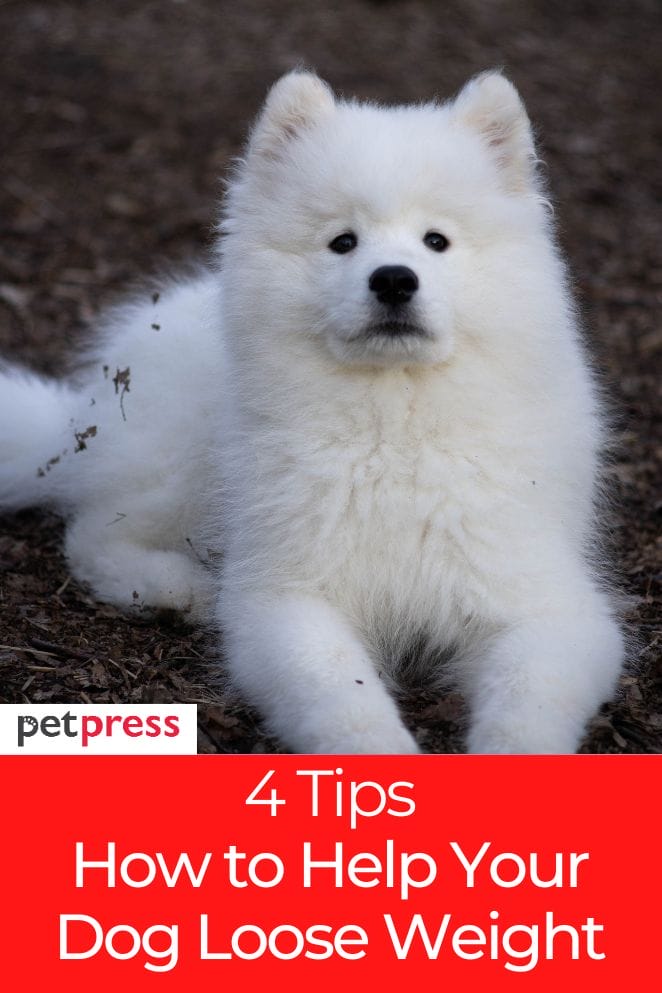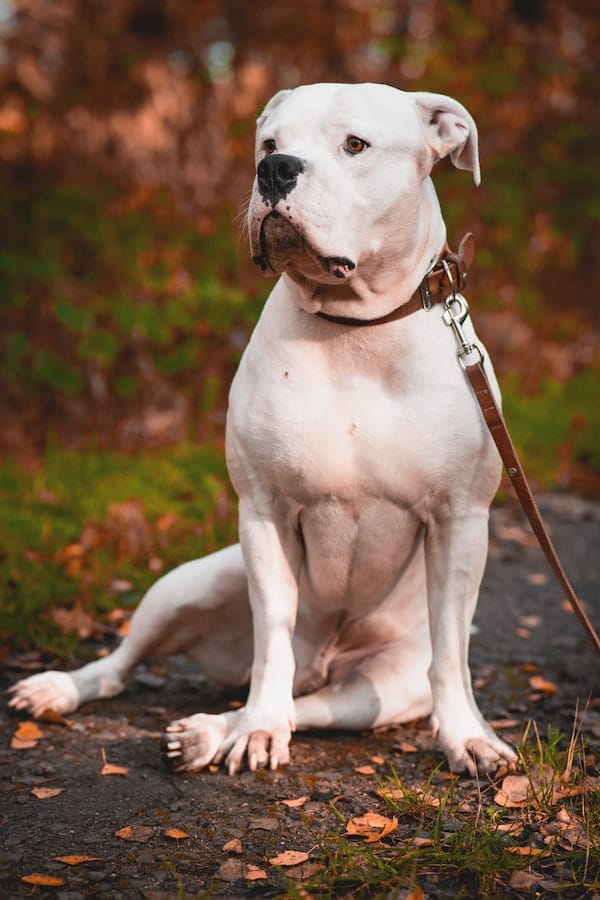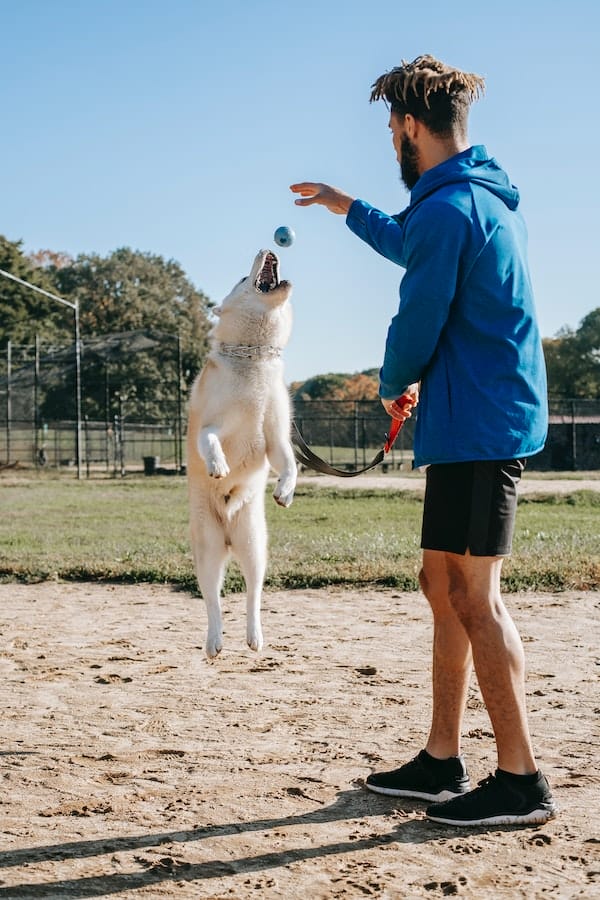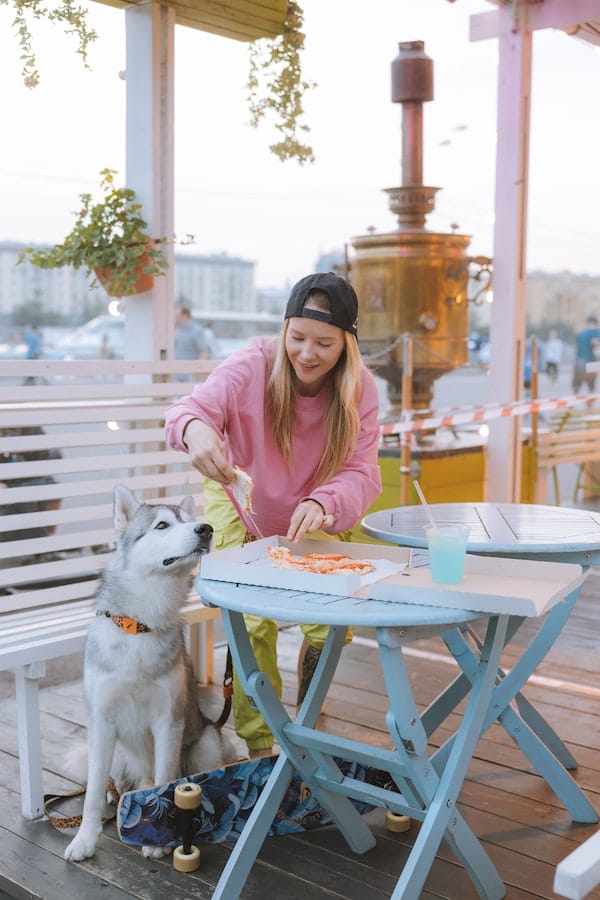
Obesity in dogs is becoming increasingly common, and the health risks associated with excess weight can be very serious.
Fortunately, it’s not hard to help your pup slim down and get back into shape.
With proper diet, regular exercise, and an understanding of canine nutrition, you can help your dog lose weight safely and effectively.
Read on to learn more about how to help your pup shed those extra pounds.
Why is my dog overweight?

Obesity in dogs can be caused by a variety of factors, including:
Overfeeding
Overfeeding is one of the most common causes of obesity in dogs.
While it may be tempting to give your pup extra treats or snacks, doing so can quickly add up and lead to weight gain.
To avoid overfeeding your dog, stick to a consistent feeding schedule and only feed them the recommended amounts based on size and activity level.
Additionally, be sure to avoid table scraps and people’s food as much as possible, as these are often high in calories and unhealthy fats.
Lastly, don’t forget to factor in treats when calculating your pup’s daily calorie intake.
Inadequate exercise
Exercise is an important component of weight management for dogs.
Not only does regular exercise help to burn calories, but it also keeps your pup’s muscles and joints healthy and strong.
Depending on the breed, age, and size of your dog, they should be getting anywhere from 30 minutes to two hours of physical activity each day.
This could include activities such as walks, runs, hikes, or trips to the dog park.
Additionally, you can also incorporate games like fetch and tug-of-war into their exercise routine to keep them engaged and motivated.
Health issues
In some cases, obesity in dogs may be caused by underlying health issues such as thyroid problems or hormone imbalances.
If you suspect that your pup may have a health condition, it is important to speak with your veterinarian as soon as possible so that they can provide diagnosis and treatment.
Additionally, if your pup has been diagnosed with a medical condition, be sure to follow their dietary recommendations carefully, as this will help ensure your pup stays healthy and slim.
Genetics
In some cases, genetics can also play a role in canine obesity.
If your pup is predisposed to being overweight due to their breed or family history, it is important to be extra vigilant when it comes to their diet and exercise routine.
Additionally, if your pup has been spayed or neutered, it may be more likely to gain weight due to a decrease in metabolic rate.
How can I help my dog lose weight?

There are several steps you can take to help your pup slim down.
Provide a balanced diet
It is important to provide your pup with a balanced diet that is appropriate for their age, size, and activity level.
This means feeding them the right amounts of proteins, fats, carbohydrates, vitamins, and minerals at each meal.
Additionally, be sure to stick to high-quality food that does not contain fillers or artificial additives.
Talk to your veterinarian about what type of food is best for your pup, as well as how much they should be eating each day.
Encourage regular exercise
Regular physical activity is essential to maintaining a healthy weight in dogs.
Depending on their breed and size, your pup should get anywhere from 30 minutes to two hours of exercise per day.
This can include activities such as walks, runs, hikes, or trips to the dog park.
Additionally, you can also incorporate games like fetch and tug-of-war into their routine to make sure they stay engaged and motivated.
Monitor progress
It is important to keep track of your pup’s weight and progress over time.
Make sure to weigh them regularly and note any changes in their condition.
If you notice that your pup is not losing weight, it may be necessary to adjust their diet or exercise routine.
Additionally, if you are concerned about your pup’s health, speak with your veterinarian as soon as possible.
Understanding canine nutrition
In order to ensure your pup stays healthy and slim, it is important to understand the basics of canine nutrition.
This means knowing what type of food is appropriate for their age, size, and activity level, as well as how much they should be eating each day.
Additionally, try to avoid processed or human food, as this can cause obesity and other health issues. Speak with your veterinarian for advice on creating a balanced diet for your pup.
Why is it so hard for dogs to lose weight?

Unfortunately, it can be difficult for dogs to lose weight because they lack the ability to understand when they are full.
As such, they often overeat and consume more calories than needed.
Additionally, some breeds of dogs may have a genetic predisposition towards obesity which can make it even harder to manage their weight.
It is important to take the necessary steps to ensure your pup stays slim and healthy, such as providing a balanced diet and encouraging regular exercise.
Additionally, be sure to monitor your pup’s progress over time and speak with your veterinarian if you have any concerns about their health or nutrition.
Final thoughts
Maintaining a healthy weight in dogs is an important part of keeping them happy and healthy.
By providing a balanced diet, encouraging regular exercise, and monitoring their progress over time, you can help your pup stay healthy and slim.
Additionally, understanding the basics of canine nutrition can help ensure your pup gets the fuel they need to stay active and strong.
With the right diet and exercise, you can help your pup reach its ideal weight!
FAQs
The amount of exercise your pup needs depends on their breed, size, and activity level. Generally speaking, dogs should get anywhere from 30 minutes to two hours of physical activity per day.
Make sure to weigh your pup regularly and note any changes in their condition. Additionally, if you are concerned about your pup’s health, speak with your veterinarian as soon as possible.
If your pup is not losing weight, it may be necessary to adjust their diet or exercise routine. Talk to your veterinarian for advice on creating a balanced diet and providing the right amount of activity for your pup.
- Does Cat Litter Melt Ice? The Complete Guide to Winter Safety - January 30, 2026
- Happy Tail Dogs: Understanding This Common Canine Condition - January 29, 2026
- How Cold Can Outdoor Cats Handle? Feline Winter Safety - January 27, 2026


GIPHY App Key not set. Please check settings